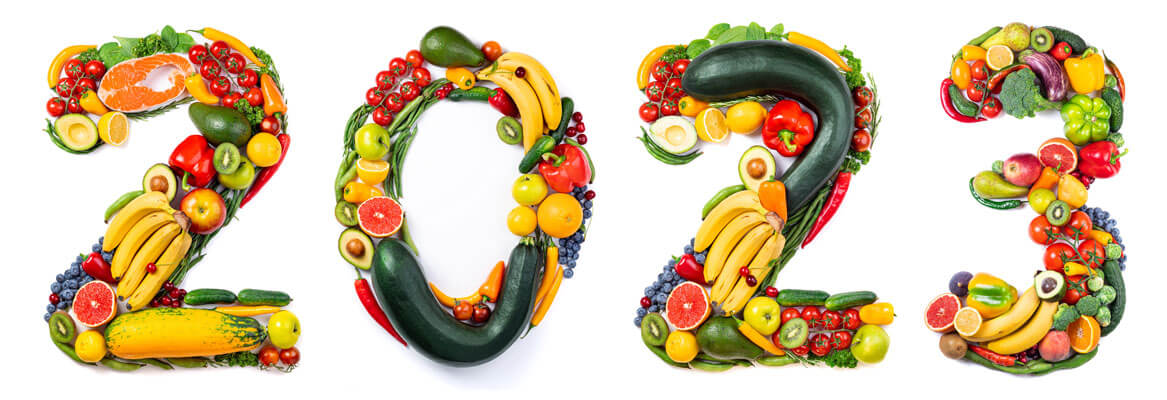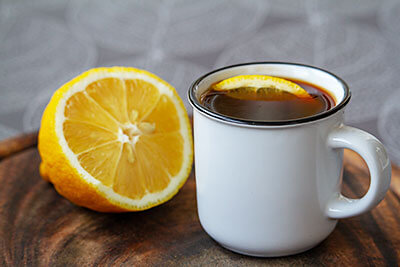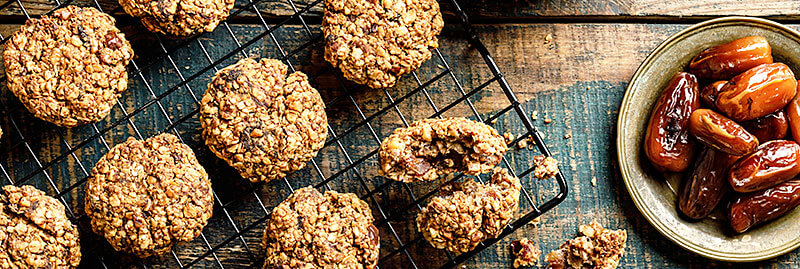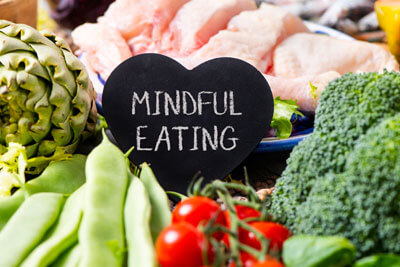
Diet Trends for 2023
“Healthy-fied” Coffee

Move over cream and sugar, coffee has a new side kick in town. According to TikTok, there is a rising trend in people adding lemon juice to their coffee. Unfortunately, this drink is not being advertised as a citrusy pick me up but rather as a tool for weight loss.
While there is nothing harmful about adding lemon juice to coffee or tea if you enjoy the taste, it is not likely to lead to weight loss on its own, making this trend misleading. If you are looking to reduce sugar or fat in your coffee or tea, lemon juice could be an alternative to cream or sugar.
Another coffee trend we may see in 2023: protein coffee or as the influencers are calling it “profee!” New protein powder products designed for warm beverages are becoming available. If you do not regularly eat breakfast but enjoy a coffee in the morning this may be a good opportunity to sneak in some additional protein. However, like the lemon coffee, there is nothing magical about this combo. If you are interested in a protein boost but not into protein powders, try a latte made with 2% milk or add a few spoonfuls of skim milk powder which will provide around 9 grams protein.
Non-alcoholic drinks
With two months of the year, Sober October, and Dry January, dedicated to being alcohol free it seems that avoiding alcohol has become somewhat of a trend. Of course, people may choose to avoid alcohol for a variety of different reasons including cultural, spiritual or health reasons and not just because it is trendy. But, because of this rising trend, non-alcoholic beer, and wine, mocktails and drinks like “dirty sodas” are more widely available in stores and restaurants and there has been an increase in recipes shared online.
Dirty sodas, said to have originated in Utah but made popular by, you guessed it, TikTok, is a non-alcoholic beverage made by combining soft drinks like Coke or Sprite with cream, flavoured syrups and fruit or fruit juices. While it is important to be mindful of the sugar and fat content of these drinks, they can be enjoyed occasionally. Consuming alcohol is not without risks, so it is great to see a rise in enjoyable alternatives.
Health Canada has recommended women limit alcohol to no more than 2 standard drinks a day and men to no more than 3 drinks per day to reduce the health risks associated with drinking. Avoiding alcohol may help improve sleep, support mental health, lead to improvements in certain health conditions like high blood pressure and heart disease and may reduce risk of certain cancers.

Dates as a sugar substitute
Using dates to sweeten foods certainly isn’t new. Dates are used in a variety of different recipes from all over the world. While dates are high in sugar, they are also a great source of fibre, 4 dates provide a whopping 7 grams of fibre. Dates are also a good source of vitamins and minerals such as vitamin K, phosphorus, potassium, calcium and magnesium. Like most other foods, dates are best consumed in their whole form. Date pastes, syrups and sugars are being sold in stores as a “healthy” sugar alternative. However, when you compare the nutrition labels, both are very similar. Date sugar and regular sugar both provide 4 grams of sugar per teaspoon. Date sugar does contain 1 gram of fibre however this product is not a good source of fibre as you would need to eat a lot of it to obtain the benefits. It is best to choose dates most often in their whole form.

Mindful Eating

This diet trend has less to do with what we eat and everything to do with how we eat. We live in a time where multi-tasking is the norm and distractions are constant. This certainly applies to how we eat. Meals are often eaten quickly, in front of a screen and/or on the go.
Eating while distracted can lead people to eat bigger portions and lose track of what they have eaten. Eating quickly or eating more than we need can lead to us feeling uncomfortable after a meal, lead to heartburn or indigestion and make the eating process less enjoyable overall.
We may look for more food to eat after just finishing as we do not feel satisfied from the food we ate while being distracted. The solution to this? Mindful Eating. One of the recommendations from Canada’s Food Guide is to be mindful of your eating habits. This means focus on our food while eating and pay attention to the smells, textures, and flavours, of the food. Try to place utensils down between bites to help slow down, and take away any distractions by turning off the tv, putting away cell phone or tablets and stepping away from the desk at lunch. Enjoying meals with others can also help us eat more mindfully and make the eating experience even more enjoyable.
